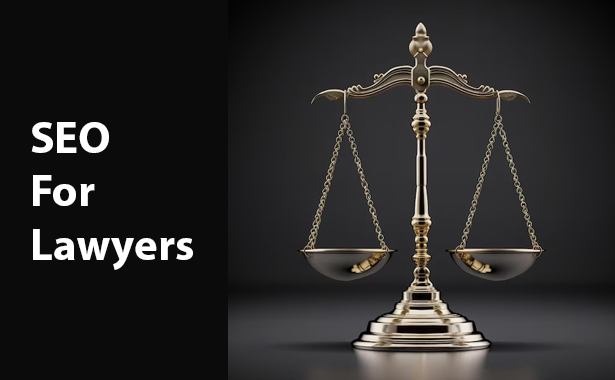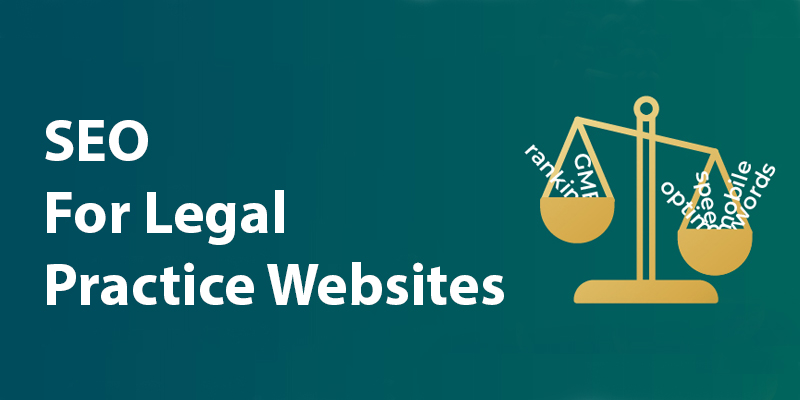Contents
Introduction
Improving your law firm’s website for search engines is an essential aspect of online marketing. It doesn’t matter how many social media followers or ads you buy if people can’t find your law firm when they search for legal services. In this guide, we’ll show you how to optimize your law firm’s website so it appears higher in the rankings and generates more traffic from search engines.
What is Search Engine Optimization?
Search Engine Optimization (SEO) is the process of optimizing a website to rank higher in search engine results. It’s a long-term strategy that requires patience and persistence, but once your site is optimized, you’ll enjoy the benefits for years to come.
A good SEO strategy will enhance your law firm’s brand reputation, generate more visitors and help you rank higher in search engine results.
- There is no such thing as “the best” website for all clients’ needs — each client has different goals when it comes to their online presence, so think carefully about what kind of content would best reflect those goals before making any changes.”
- It’s not short-term: SEO isn’t something you do once and then forget about forever–it’s a process that needs constant attention as Google makes changes to its algorithms or introduces new features. It’s not a one-off project, but rather an ongoing one that requires patience and consistency to see results.
- It’s not magic: There are no shortcuts when it comes to SEO; if you want your law firm website at the top of search engines like Google and Bing, then you need a plan that includes both technical changes as well as marketing efforts like content creation and outreach campaigns.
Read more: SEO for Lawyers: 6 Tips for Improving Your Content Marketing
Keyword Research
Before you start optimizing your law firm’s website for search engines, you need to define the topic. This will help you figure out what kind of content to create and how much time it will take.
Before you start on a solution, ask yourself: What are my goals? Is it more important for me to increase revenue or attract new clients? Do I want more referrals from existing clients or do I want them all coming from online sources? Once you have answered these questions, then consider how much time and resources are going into achieving each goal. If two or three months down the road these efforts don’t seem like they’re paying off then you might need to start considering making some adjustments in the strategy!
Technical On-Page SEO Tips
On-page SEO is the process of optimizing your website to rank higher in search results. It’s important to note that on-page optimization is not an exact science, but there are some best practices that will help you optimize your site. These include:
- Using keywords in your title tag and meta description
- Using keywords in URLs (URLs should also be short and relevant)
- Using keywords in body copy or content (1-2% keyword density)
- Using relevant headings, bold text and italics when appropriate for individual pages
Keywords in the URL
The website address is also an important factor in how well your law firm’s website will rank in search engines.
It’s important to include keywords in the URL, because it helps Google and other search engines determine if your site is relevant to a particular query. For example, if someone were searching for “criminal defense attorney,” they would want to see sites that had content related to criminal defense attorneys first (and not just random pages). To do this efficiently and effectively, Google looks at various factors when determining which websites should show up first: including whether or not a page has relevant keywords in its URL; how many times those terms appear on each page; how often those terms are repeated throughout other portions of the site (such as titles); whether there are links pointing back towards this specific page; This process can take time – so be patient if things don’t happen overnight!
Keywords in the Title Tag
Keywords should be included in the title tag. This is the most important part of your website’s metadata, and it has a direct impact on how well you rank on Search Engine Algorithms. A good rule of thumb is to keep your title tag short and descriptive.
The best way to do this is by using phrases that are relevant to the content on your page, but also include keywords that people might use when searching for legal services or information about your practice area(s). For example: “Best Criminal Defense Attorney” or “Criminal Defense Attorney in Seattle” could both work effectively as titles–they’re short enough not to get cut off by Google search results (which truncate titles after 55 characters), they’re descriptive enough so readers know what they’re getting into when they click through into an article or post, and they include two different but related keywords (criminal defense attorney vs criminal lawyer).
If possible, include both words from any given phrase in order for each one’s relevance score go up slightly higher than if just one were used alone; however don’t go overboard here! You want readers interested in finding out more information about what kind of legal services/advice we provide first.
Keywords in the Meta Description Tag
Keywords should be included in the title tag. This is the most important part of your website’s metadata, and it has a direct impact on how well you rank on Search Engine Algorithms. A good rule of thumb is to keep your title tag short and descriptive.
The best way to do this is by using phrases that are relevant to the content on your page, but also include keywords that people might use when searching for legal services or information about your practice area(s). For example: “Best Criminal Defense Attorney” or “Criminal Defense Attorney in Seattle” could both work effectively as titles–they’re short enough not to get cut off by Google search results (which truncate titles after 55 characters), they’re descriptive enough so readers know what they’re getting into when they click through into an article or post, and they include two different but related keywords (criminal defense attorney vs criminal lawyer).
If possible, include both words from any given phrase in order for each one’s relevance score go up slightly higher than if just one were used alone; however don’t go overboard here! You want readers interested in finding out more information about what kind of legal services/advice we provide first.
Keywords in the Meta Description Tag
Meta descriptions are one of the most important factors in SEO. This is because they appear in search engine results, so they’re the first thing people see when they click on your website’s link.
The best way to write a meta description is by using keywords that are specific enough for Google and other search engines but not so specific that they don’t make sense to users who see them in their browser tabs or bookmarks.
Including your primary keyword(s) here will help bring more traffic from potential clients who are looking for information about gonorrhea symptoms on their phones or computers!
Listing Your Law Firm’s Website on Local Directories
Local directories (Canada),(United States) are a great place to get your Law Firm’s Website listed. These sites contain information about businesses in a specific area and allow people who are searching for a lawyer in that area to find you.
- Why is it important to be listed on local directories?
- Where can you list your website on local directories?
- Importance of having a good description of your law firm’s services in the description section of your listing
Optimizing Your Content for Search Engines
Optimizing your content for search engines is a lot like optimizing your website in general. You want to make sure that the keywords you use are relevant, but also make sense within the context of what you’re writing about.
Optimizing Your Law Firm’s Website for Mobile Devices
- Optimizing your law firm website for mobile devices is critical.
- If you don’t have a Mobile-Friendly Website, it’s time to get one! The importance of having a mobile-optimized site has been well documented by Google and other search engines. In fact, if you’re not optimizing your site for mobile devices, then you could be missing out on as much as 30% of potential traffic–which could mean lost revenue or clients!
Using Social Media to Promote Your Firm’s Website
Social Media is a great way to promote your website and build your brand. It’s also an excellent way to engage with followers, generate leads, and even get referrals.
- Share content on social media accounts like Facebook and X. This can include blog posts from your firm’s blog as well as other helpful resources such as articles or whitepapers that are relevant to the audience you’re trying to reach.
- Engage with potential clients by responding directly in the comments section of their posts (if it’s appropriate). This will help them feel heard and valued by you, which will increase trust in you over time–and hopefully lead them back onto your site!
- Promote the link to your site within any updates about events happening at work; this way people who are interested will know where they can find more information about what went down during said event!
Conclusion
If you’re looking to improve your law firm’s Online Presence and increase its web traffic, then SEO is one of the best ways to do so. Search engines like Google are an essential part of any business’ marketing strategy today because they allow potential clients to find and connect with businesses in their area who can help them solve their legal problems. By following these tips on how to optimize your website for search engines (and making sure there are no broken links), you’ll be able to enjoy all the benefits that come along with having a high ranking on Google’s first page when someone searches for keywords related specifically to your area of expertise.
Disclaimer: The content provided on this blog is for informational purposes only and does not constitute legal, financial, or professional advice.







